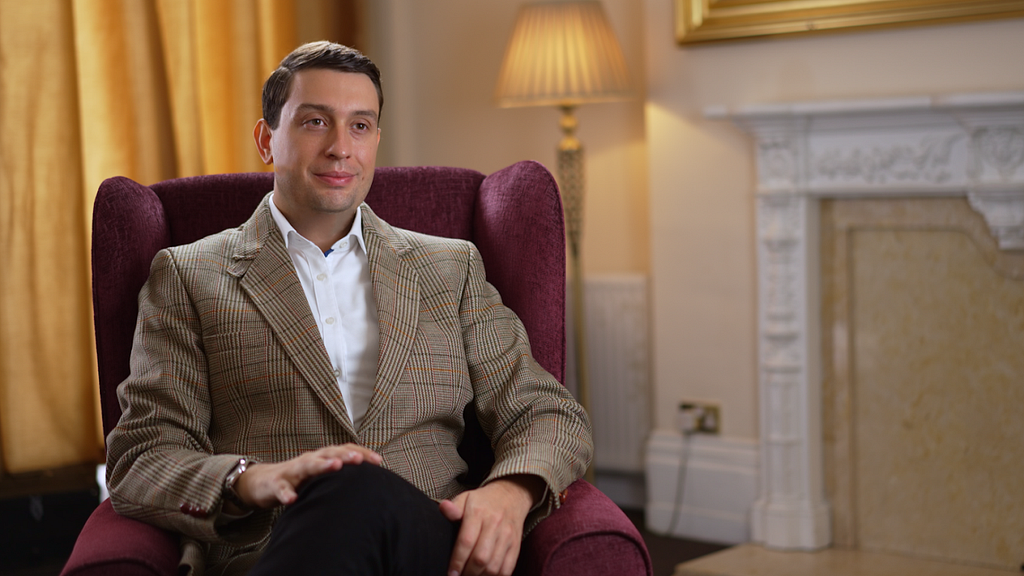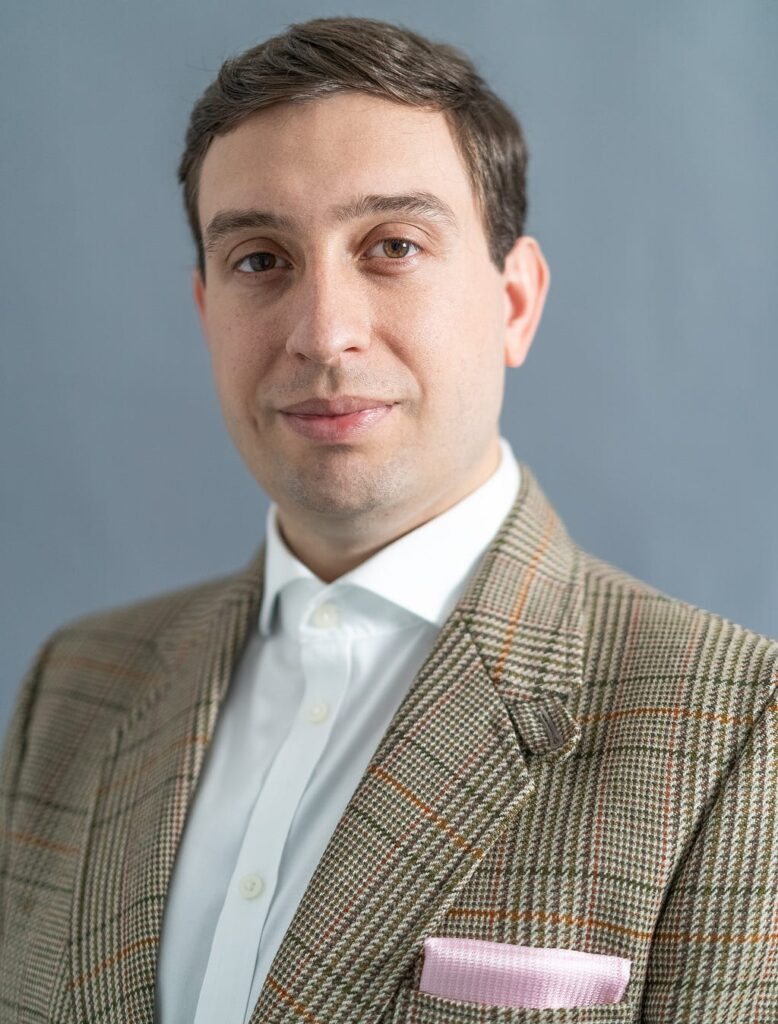An Interview With Ben Ari
Long are the days when everyone used to dress the same, or have similar preferences. In today’s modern office space, it is essential to have variety. This means the employee has the flexibility to move their office space, from one design theme to another. Imagine having the option to set your office in a space depending on your mood, or the way you feel. Some employees may prefer having consistency in using the same space and their needs to be considered as well.
As a part of our series called “How To Design Office Spaces That People Love To Work In”, we had the pleasure of interviewing Dr. Stefan Ivantu.
Dr Stefan Ivantu is a Private Psychiatrist, and a specialist in Adult ADHD and complex cases. He offers private ADHD assessments in London, UK, and online. Dr Ivantu completed his specialist training in Oxford, UK having clinical and leadership experience in developing ADHD services.
Thank you so much for joining us in this series! Before we dive in, our readers would love to learn a bit more about you. Can you tell us a story about what brought you to this specific career path?
Sure, I believe my journey in choosing psychiatry was meant to be. It happened in my family my father has been a psychiatrist, now for more than 40 years. And, my mother a psychiatric nurse, now retired. Initially, I thought surgery would be a more reputable career path. However, one day I had to visit a family friend going through alcohol rehab. For the first time after discussing it with him, I felt yes — I can make a change. This experience, and perhaps the family upbringing made me naturally choose psychiatry.
Can you share the most interesting story that happened to you since you started this career?
There is no single story that stands out, however having the opportunity to complete my residency in Oxford UK, was very interesting. Having the opportunity to develop a government-owned ADHD service was perhaps the highlight of my career experience. Being able to help not just an individual, but bring something extra which at the time was not available.
It has been said that sometimes our mistakes can be our greatest teachers. Can you share a story about a mistake you made when you were first starting and a lesson you learned from that?
I believe making mistakes it is human, as long we are learning from them and they are not catastrophic. Retrospectively, I wish to choose psychiatry even earlier. The lesson learned for me is to listen your heart, and follow your passion. For me my passion is psychiatry and delivering the highest service posible.
Can you please give us your favorite “Life Lesson Quote”? Can you share how that was relevant to you in your life?
“I’ve learned that people will forget what you said, people will forget what you did, but people will never forget how you made them feel.” Reflecting on the past experiences, I believe this quote applies to most of our relationships. Beside this has a significant influence from a psychodynamic therapy perspective.
None of us are able to achieve success without some help along the way. Is there a particular person who you are grateful towards who helped get you to where you are? Can you share a story about that?
Perhaps the greatest amount of support, I received from Dr.P at the beginning of my career. At the time, he was having difficulties in having a resident working with him. The story was he chnaged 5 different residents in a period of 3 months. He had the trust in me delegating challenging tasks, and allowed me to build the fundation to pursue the resudency training in Oxford, UK. Now Dr.P is in his late 70s and still working as a psyhiatrist, he is one of my examples when it comes to longevity.
What are some of the most interesting or exciting projects you are working on now? How do you think that might help people?
Currently, I am developing the ADHD Specialist private clinic in London aiming to deliver one of the highest quality services. Besides helping prvate clients achieving their goals, I hope our initiative will inspire others in developing servies with an emphasis on quality. I believe technology can be used in a positive way in delivering a better care and more sustainable outcomes.

Thank you for that. Here is the main question of our discussion. What are your “Five Things You Should Do To Design Office Spaces That People Love To Work In” and why.
In today’s environment, it is often overlooked that people suffering from ADHD, may struggle and avoid the traditional office space. Therefore, they prefer working from home and may not receive the appropriate recognition or opportunities compared with their peers.
1 . Utilizing soundproofing materials is often overlooked when it comes to office design. This improves significantly the productivity of employees having a neurodivergent background. But, there are also studies showing that employees in general can be more productive. On the other hand, a noisy environment can lead to absenteeism, stress, office avoidance, and an overall drop in a team’s output.
2 . For some, having a dedicated low-stimuli private place may further enhance their experience in the office. This may also add further psychological benefits as a safe place, in particular when designed as a homely environment. Often this place can be used as a reset for some feeling stressed or suffering from certain conditions such as hyperacusis. Besides this, a quiet place further promotes the calm mindset which is necessary in team and decision-making processes.
3 . I believe we are only at the beginning of the journey in understanding what potential noise cancellation can have in optimizing the office space. Having a clear policy where employees can use their own technology e.g. noise-cancellation headphones always helps. People suffering from ADHD often find themselves working better, when they are in a quiet environment or utilizing this type of headphones. The noise cancellation technology can be described as passive, which we covered above in making the office a quieter space. However, active noise cancellation technology is an exciting area that can be implemented and potentially scaled. This technology is already widely used by some of the cars and headphone manufacturers.
4 . Long are the days when everyone used to dress the same, or have similar preferences. In today’s modern office space, it is essential to have variety. This means the employee has the flexibility to move their office space, from one design theme to another. Imagine having the option to set your office in a space depending on your mood, or the way you feel. Some employees may prefer having consistency in using the same space and their needs to be considered as well.
5 . The most important tip is to, seek feedback from employees and in particular the ones diagnosed with a neurodiverse condition. Designing a better office space should be a continuous process, and a good model to use is the PDSA problem-solving method: Plan — Do — Study — Act.
You are a person of great influence. If you could start a movement that would bring the most amount of good to the most amount of people, what would that be? You never know what your idea can trigger. 🙂
Improving intergenerational relationships would help us all in working together towards a better and more sustainable world.
We are very blessed that some of the biggest names in Business, VC funding, Sports, and Entertainment read this column. Is there a person in the world, or in the US whom you would love to have a private breakfast or lunch with, and why? He or she might see this, especially if we tag them 🙂
Michael Jordan taught me that everything is possible. He became an icon, despite not being the tallest, but by having a good work ethic and the right mindset. Would be interesting to learn from like-minded individuals about the secret to surviving for years at the top of their game. Someone of a similar caliber already taught me about the importance of resilience in business.
How can our readers further follow your work online?
Find me on https://adhdspecialist.com where I talk about ADHD and offer private psychiatrist services in London and the U.K.
Thank you so much for joining us. This was very inspirational!
Dr. Stefan Ivantu, ADHD Specialist On How To Design Office Spaces That People Love To Work In was originally published in Authority Magazine on Medium, where people are continuing the conversation by highlighting and responding to this story.
